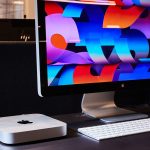In the landscape of healthcare, the integration of tablets has ushered in a new era of innovation, revolutionizing medical practices, patient care, and administrative workflows. These portable devices have become essential tools, streamlining processes, enhancing communication, and improving overall efficiency within the healthcare industry.
1. Enhanced Patient Care
Tablets have redefined patient care by facilitating quicker access to patient records, medical history, and treatment plans. Healthcare professionals can update records in real-time, ensuring accurate and up-to-date information, leading to more informed decision-making and personalized care.
2. Mobility and Point-of-Care Access
Tablets provide mobility and point-of-care access for healthcare providers. Doctors and nurses can carry these devices while making their rounds, accessing patient information, medication data, and treatment protocols instantly, enhancing efficiency and reducing errors.
3. Telemedicine and Remote Consultations
The integration of tablets has expanded telemedicine and remote consultation capabilities. Healthcare providers can conduct virtual appointments, share medical records, and provide consultations remotely, improving accessibility to healthcare services for patients, especially in remote or underserved areas.
4. Medical Education and Training
Tablets serve as valuable tools for medical education and training. Students, residents, and healthcare professionals use tablets for accessing medical literature, interactive learning modules, simulations, and educational apps, facilitating continuous learning and skill development.
5. Streamlined Administrative Workflows
In administrative tasks, tablets streamline workflows. From appointment scheduling and billing to inventory management and documentation, administrative staff can efficiently manage various tasks, optimizing operational efficiency within healthcare facilities.
6. Integration with Medical Devices and IoT
Tablets integrate with medical devices and IoT systems. They serve as interfaces for monitoring devices, allowing healthcare providers to collect, analyze, and share patient data seamlessly, contributing to more accurate diagnostics and personalized treatment plans.
7. Patient Engagement and Health Monitoring
Tablets engage patients in their healthcare journey. They facilitate health monitoring, medication reminders, and access to educational materials, empowering patients to take an active role in managing their health and fostering better communication between patients and providers.
Conclusion
The integration of tablets in healthcare has brought about transformative changes, revolutionizing patient care, medical practices, and administrative workflows. As these devices continue to evolve and become more specialized, their role in enhancing efficiency, improving patient outcomes, and shaping the future of healthcare remains pivotal, promising further innovations and advancements in the delivery of healthcare services.





